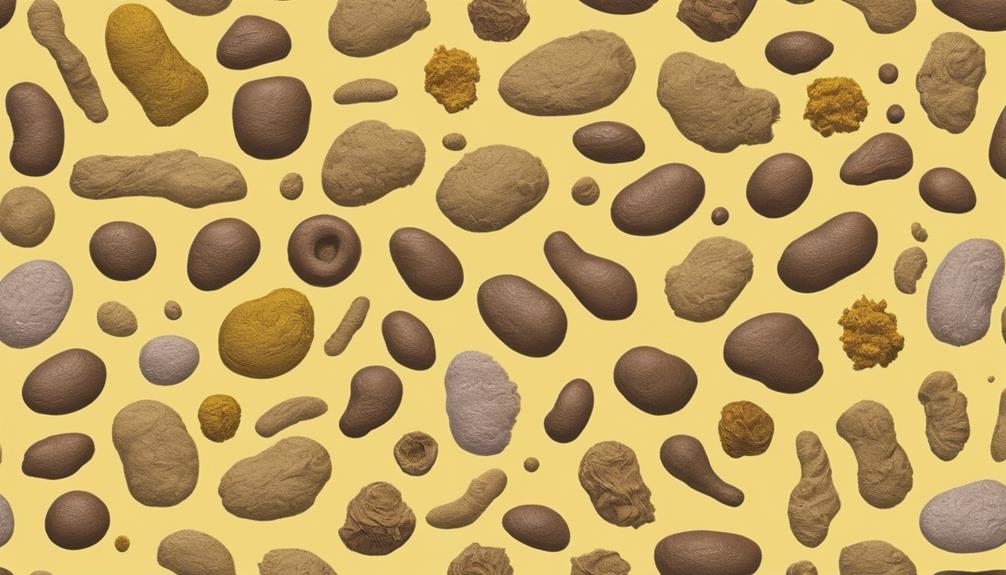When it comes to addressing a newborn's lack of bowel movements, it can be a source of concern for many parents. The discomfort and potential issues associated with constipation in babies can be distressing.
We'll explore practical and effective ways to help your little one find relief and promote healthy digestion. From simple dietary adjustments to gentle techniques, there are steps you can take to support your baby's well-being.
Stay tuned to discover how you can ease your newborn's discomfort and establish healthy habits for their digestive system.
Key Takeaways
- Adjust feeding routine for relief, with proper latching and smaller, frequent feedings.
- Ensure newborn hydration to prevent constipation and promote digestion.
- Use gentle massage techniques to aid bowel movements and ease discomfort.
- Seek medical advice promptly for signs of distress or prolonged constipation in newborns.
Common Causes of Newborn Constipation
Newborn constipation can be caused by various factors, including natural gut movement patterns and breast milk absorption rates. It's common for babies to have infrequent bowel movements due to the slow absorption of breast milk, leading to harder stools. Some infants might naturally have slower gut movements, making it harder for them to pass stool regularly.
In certain cases, medical issues like intestinal muscle problems or digestive tract blockages can also contribute to constipation in newborns.
If you notice your baby struggling to poop or passing hard stools, it's essential to consult a doctor to rule out any underlying medical conditions. Monitoring your baby's eating patterns, whether they're breastfed or formula-fed, can also provide insights into potential causes of constipation. By keeping a close eye on your baby's bowel movements and seeking guidance from a healthcare professional, you can help alleviate any discomfort your infant may be experiencing.
Adjusting Feeding Routine for Relief
When adjusting your feeding routine to help alleviate constipation in your newborn, consider focusing on ensuring proper latching during breastfeeding. Proper latching can aid in effective milk transfer and digestion, potentially easing constipation issues.
To further assist your baby, here are some tips for adjusting your feeding routine:
- Offer smaller, more frequent feedings to help regulate bowel movements.
- Remember to burp your baby after feeds to prevent gas buildup, which may contribute to constipation problems.
- Try different feeding positions, like keeping your baby upright during and after feeding, to promote better digestion and bowel movements.
If you find that these adjustments don't provide relief for your newborn's constipation, consulting a lactation consultant or pediatrician can offer personalized solutions tailored to your baby's specific needs. Remember, every baby is unique, and finding the right feeding routine may require some trial and error. Trust your instincts and seek professional guidance when needed.
Importance of Hydration for Newborns
Ensuring proper hydration is crucial for your little one's well-being and comfort, especially during the early stages of life. Both breast milk and formula are essential sources of hydration for newborns. Here is a comparison of breast milk and formula to help you understand their importance in keeping your baby hydrated:
| Breast Milk | Formula |
|---|---|
| Easily digested | Nutrient-rich |
| Contains antibodies | Convenient |
| Adjusts to baby's needs | Controlled portions |
| Cost-effective | Allergies possible |
| Promotes bonding | Suitable for allergies |
Dehydration can lead to issues like constipation, affecting your baby's bowel movements. Watch out for signs such as a dry mouth, fewer wet diapers, or a sunken fontanelle. If you notice any of these signs, consult your healthcare provider for a proper evaluation and guidance on ensuring your newborn stays well-hydrated for their health and comfort.
Gentle Massage Techniques for Newborns

To help alleviate your baby's discomfort and promote regular bowel movements, gentle massage techniques can be beneficial for newborns. When it comes to your baby's well-being, incorporating gentle massages into your routine can aid in their digestive system's stimulation, promoting bowel movements and overall comfort.
Here are some effective techniques for giving your baby a soothing tummy massage:
- Clockwise Belly Massages: Gently massaging your baby's belly in a clockwise motion can help relieve gas and assist in the passage of stools.
- Gentle Pressure: Applying light pressure to your baby's tummy while massaging can encourage the movement of stool through their intestines.
- Lower Abdomen Massage: Focusing on massaging your baby's lower abdomen can alleviate discomfort and support regular bowel movements.
Seeking Medical Advice if Needed
If your newborn is displaying signs of discomfort or irregular bowel movements, promptly seeking medical advice is important for their well-being.
It's vital to contact your pediatrician if your baby hasn't passed meconium within 48 hours of birth. Additionally, if your baby seems to be in pain, strains during bowel movements, or has a bloated belly, consulting with a healthcare provider is recommended.
Any concerns regarding your newborn's pooping frequency or discomfort should prompt you to reach out to your healthcare provider for guidance.
Immediate medical attention is necessary if your newborn shows signs of distress such as vomiting or blood in the stool.
Remember, your healthcare provider is there to support you and your baby's health, so don't hesitate to seek their expert advice whenever needed.
Your baby's well-being is our top priority, and seeking medical advice promptly can help address any potential issues effectively.
Frequently Asked Questions
How Do You Help a Newborn That Hasn't Pooped?
If a newborn hasn't pooped, we recommend checking with a healthcare provider for guidance. It is crucial to make sure the baby is comfortable and feeding well. Changes in diet or feeding methods can impact pooping habits.
How Long Is It OK for a Newborn to Go Without Pooping?
It's normal for a newborn to go up to 5 days without pooping. Breastfed babies can go longer without pooping, especially if they're gaining weight and feeding well. If concerns arise, consult a healthcare provider promptly.
What Happens if My Newborn Isn't Pooping as Much?
If our newborn isn't pooping as much, it could be normal based on their feeding method. Breastfed babies may go days without pooping. However, if it persists or there's discomfort, consulting a healthcare provider is important for reassurance and guidance.
How Can I Help My Newborn Poop Move?
To help our newborn poop, we gently massage their tummy, encourage frequent nursing, offer water between feedings, and do bicycle leg movements. If our baby doesn't poop for over 48 hours, we consult our pediatrician for guidance.
Conclusion
As parents, we're the gentle gardeners tending to our little sprouts. Remember, just like a flower needs sunlight and water to bloom, our babies need our love and care to thrive.
If your newborn isn't pooping, don't fret. With patience, hydration, and a few gentle techniques, you can help them find relief. And if all else fails, don't hesitate to seek guidance from a healthcare provider.
Your baby's well-being is worth it.









